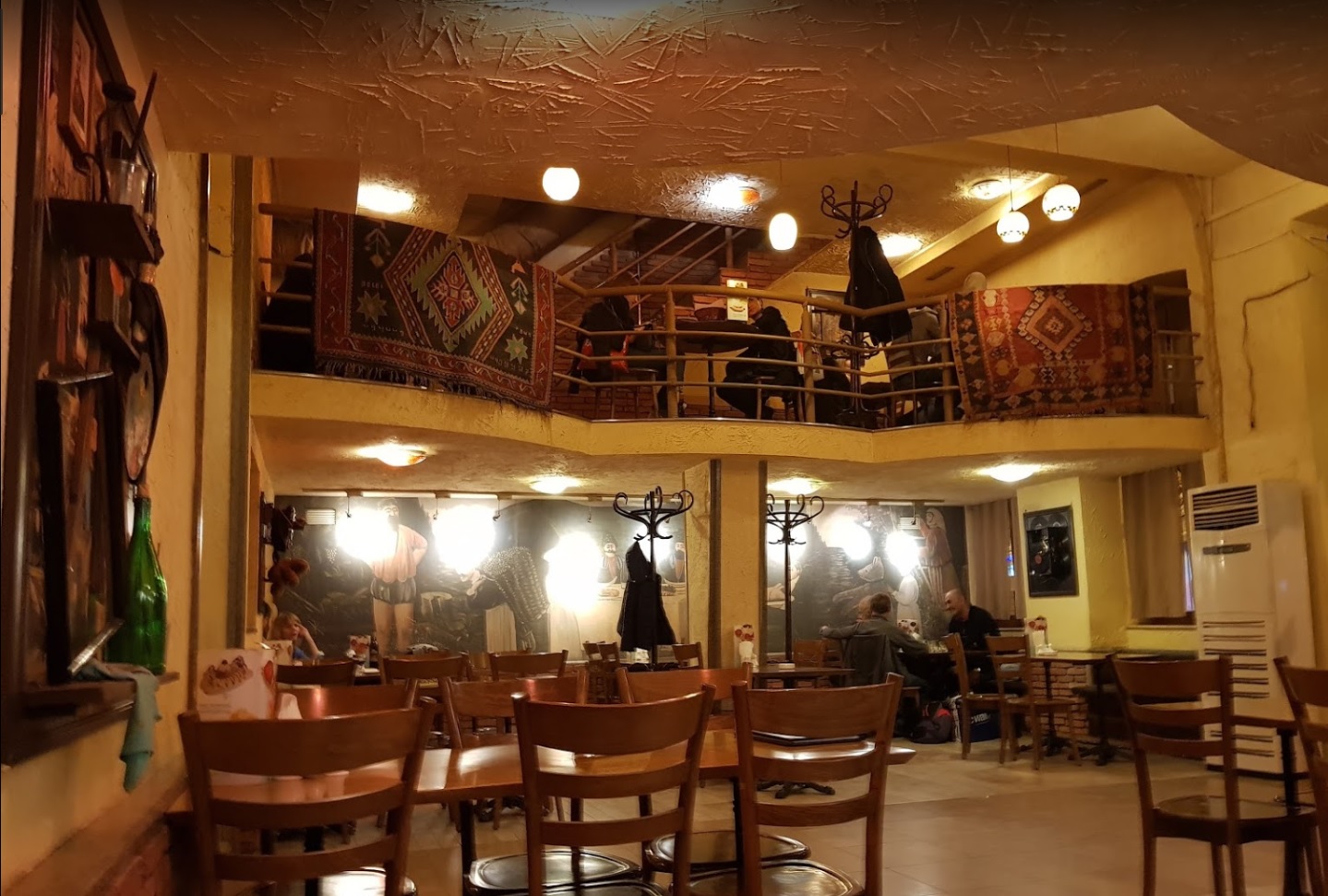Transgender women ‘kicked out of’ Machakhela restaurant in Tbilisi as ‘unwanted clients’


Two transgender women were denied entry into a Tbilisi branch of restaurant chain Machakhela, being told they were ‘unwanted clients’. The women said they were discriminated against because of their gender identity, a claim the restaurant’s management has denied.
A video posted on Facebook on 4 April showed one of the women asking the restaurant’s security why they were denied entry; he responded that they were ‘unwanted guests’ because they were blacklisted. The video also showed him saying that their gender identity was not the reason for the denial.
Both women also accused the restaurant security of physical violence. The Interior Ministry has launched an investigation.
Maka, one of the two transgender women told OC Media that the restaurant’s security guard laughed at them and called them men.
‘They forced us out as soon as we stepped in, saying we were unwanted people. They said they didn’t want us to be seen by their clients. They abused us physically and verbally, also they were laughing at us’, said Maka.
She added that her friend’s hand was injured after the security guard shut the door on it.
‘What will people say, you are men, they said. People were watching us from the terraces. It was horrible — they were laughing because we are who we are. Shameful!’, said Maka.
A spokesperson for Machakhela did not return OC Media’s calls.
The restaurant’s manager told Netgazeti that the women were not welcome ‘not because they are transgender, but because they cause debauchery, smoke cigarettes inside, and disobey the ground rules of the restaurant; in particular making noise’.
‘The reason [for the denial] that these ladies have stated, that they were not let in because they are transgender, is absurd. They have visited our restaurants not only at Meidan, where the incident happened, but they’ve visited us many times at Aghmashenebeli Street and Freedom Square’, the manager said.
Temur Sabelashvili, a lawyer at queer rights organisation the Equality Movement who is providing the women with legal support, said they were waiting for the findings of the investigation.
‘The two transgender women were forcibly removed from the site. Transphobic language was used against them. One of the transgender women has injuries on her body’, Sabelashvili told OC Media.
He said they had not yet considered taking the case to court as they were waiting for the results of the investigation.
Anti-discrimination Legislation
Georgia adopted anti-discrimination legislation in 2014 as part of its Visa Liberalisation Action Plan with the EU.
The law intended to eliminate all forms of discrimination and to ensure equal rights of everyone irrespective of their sexual orientation or gender identity, among other things.
On Thursday, the Georgian Parliament voted on a bill to remove these two aspects from the anti-discrimination law.
The bill, which failed to pass due to a lack of MPs present, was initiated by Emzar Kvitsiani, an MP from the Patriots Alliance Party. Twenty-six MPs voted in favour of removing references to sexual orientation and gender identity from the law, while 12 voted against it.
Transgender rights in Georgia
A 2018 report by the Public Defender’s Office noted a number of issues faced by transgender people in Georgia.
It reiterated the need for procedures to change the sex-markers of transgender people in official documents to be eased. Currently, transgender people can only change the sex marker on their ID documents if they undergo sex reassignment surgery.
‘The prerequisite of sterilisation to change sex-markers in documents contradicts the principles of respecting one’s body, self-determination, and human dignity’, said the report.
It noted that because of the current rules, transgender people were unable to use state services.
‘They face problems in public engagement, receiving an education, working, and receiving health services, which is negatively reflected on their rights’, the report said.
It also noted that the state budget did not cover medical services for transgender people’s needs.
The report added that transgender people were especially vulnerable to human trafficking and sexual exploitation in Georgia.
The report also said that mechanisms to protect queer people from domestic violence were insufficient. This issue was previously identified in the Public Defender’s 2017 report, which noted that ‘unfortunately, law enforcement officials don’t have an efficient strategy against hate-motivated violence. They react to individual cases and don’t take action against the systematic problem’.
[Read more about domestic violence and queer people in Georgia: Queer people in Georgia ‘completely defenceless’ against domestic violence]









